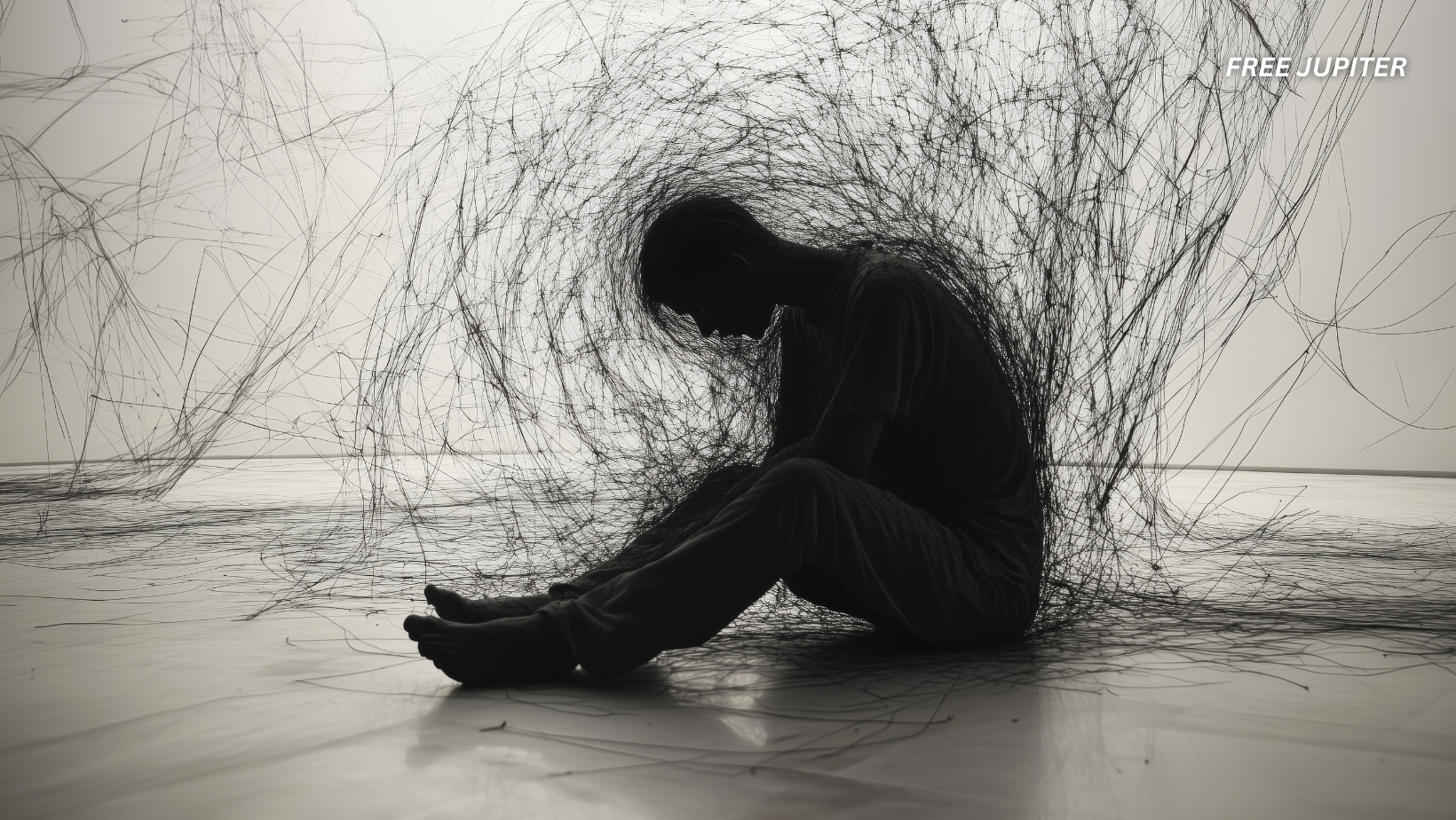Fears don’t always vanish with age. Some of the worries that shaped childhood continue to whisper in the background long after growing up. They might appear in small decisions, relationships, or even in the way someone handles change. These fears are not signs of weakness—they’re echoes of early experiences that left a mark. Understanding where they come from can make them easier to face.
Below are twelve common fears that often carry over from childhood, explained in a way that shows how they take root and how they shape life as an adult.
1. Fear of Abandonment
The idea of being left behind can create constant unease. This fear often starts when a child grows up with caregivers who were unpredictable or absent. As adults, this can lead to reading too much into words, actions, or even silences—always waiting for signs that someone important might walk away. The result is a cycle of clinging too tightly or pushing people away before they get the chance to leave. Recognizing that this fear comes from old patterns can be the first step toward forming steadier, healthier connections.
Read more: Facing Your Phobias While Lucid Dreaming May Reduce Real-Life Fears, Scientists Say
2. Fear of Rejection
Rejection can sting at any age, but for those who learned early on that love or approval was conditional, it cuts even deeper. This fear can show up as hesitation: not applying for a job, staying silent in a group, or holding back feelings to avoid being dismissed. While this creates a sense of safety, it also prevents growth and connection. Realizing that rejection is part of the human experience—not a reflection of worth—can help weaken its hold.
3. Fear of Failure
Failure can feel catastrophic when it was once met with scolding or punishment. Instead of trying and risking mistakes, some people avoid challenges altogether. Psychologists call this a “fixed mindset,” the belief that abilities are set in stone. The truth, however, is that failure is one of the main ways people learn. Reframing failure as a stepping stone instead of a dead end can make space for progress and resilience.
4. Fear of Trusting Others
Trust is fragile if childhood experiences taught that promises break easily or secrets are not safe. As adults, this can translate into keeping walls up, always scanning for betrayal, and hesitating to believe people’s intentions. While this vigilance once served as protection, it can also prevent closeness. Learning to trust gradually, beginning with small steps, helps rebuild confidence in relationships. Not everyone will let you down—and letting some people in can make life far less lonely.
5. Fear of Change
For those who grew up in unpredictable homes, change may feel less like opportunity and more like danger. Familiarity becomes comforting because it promises stability. This makes even positive changes—new jobs, new routines, new relationships—feel threatening. Small experiments, like trying a new hobby or switching up a routine, can slowly shift this perspective. Over time, change can begin to feel less like a storm to survive and more like a current to ride.
6. Fear of Conflict
Arguments can be frightening if childhood memories of conflict involve yelling, hostility, or withdrawal. As adults, some avoid disagreements at all costs, staying quiet to “keep the peace.” Yet suppressing feelings comes at a price—resentment, stress, and a sense of being unheard. Conflict doesn’t have to be destructive; handled calmly, it can actually strengthen relationships. Learning to voice opinions gently but firmly helps make disagreements less threatening and more constructive.
7. Fear of Being Vulnerable
Showing emotions can feel unsafe if early environments rewarded toughness and punished openness. Vulnerability then becomes associated with weakness. Yet research shows that being open about struggles and feelings is the foundation of authentic connection. Sharing small pieces of oneself with trusted people can create a safe bridge toward greater openness. What once felt like weakness can, in reality, be one of the greatest strengths.
Read more: Every Parent Should Say These 7 Words To Their Kids More Often, Therapists Say
8. Fear of Being Judged
Growing up in critical environments often plants the idea that every move will be scrutinized. This can lead to second-guessing choices, overthinking words, or avoiding attention. But most people are not examining others nearly as much as it might feel. Recognizing this truth—and practicing small acts of self-expression without worrying about approval—can gradually loosen the grip of this fear. Building self-acceptance also makes outside judgment less powerful.
9. Fear of the Unknown
Unpredictability can feel unsettling for anyone, but especially for those whose childhoods linked uncertainty with chaos. As adults, this may result in clinging to rigid routines or overplanning every detail. While preparation is helpful, it can also become limiting. Facing small unknowns, like trying a new dish or exploring a new place, can build tolerance for uncertainty. The unknown doesn’t always signal danger; sometimes, it carries discovery and adventure.
10. Fear of Being a Burden
When children grow up believing they have to manage everything on their own, they may carry that belief into adulthood. Asking for help feels risky, as though it will inconvenience or weigh down others. This leads to exhaustion and isolation, trying to carry life alone. Yet the truth is, helping often strengthens bonds. Practicing small requests for support can build trust and reveal that needing others doesn’t equal being a burden.
11. Fear of Intimacy
Closeness can feel complicated when early relationships were unsafe, neglectful, or painful. In adulthood, this can mean craving connection but pushing people away before it gets too deep. The cycle is protective but also lonely. Learning to share thoughts and emotions in gradual steps with safe people can help dismantle this fear. Intimacy doesn’t have to mean loss or betrayal—it can also mean comfort, joy, and partnership.
12. Fear of Disappointing Others
For some, childhood approval was tied to achievements or compliance. This sets up adulthood with an exhausting pattern: saying “yes” to too much, sacrificing personal needs, and constantly seeking validation. The fear of letting others down becomes heavier than the desire to live authentically. Breaking this cycle starts with boundaries—choosing when to say no, even if it risks disapproval. With practice, prioritizing one’s own values and well-being becomes easier, and the fear of disappointing others begins to shrink.
Read more: Grew Up as a ‘People-Pleaser’? You Probably Developed These Traits as an Adult
Closing Reflections
These fears might have started as survival strategies, helping children make sense of uncertain or difficult environments. But what once protected can eventually limit. Recognizing these fears is not about assigning blame—it’s about understanding their roots. Once named, they lose some of their hidden power.
Adulthood offers the chance to reshape old patterns into healthier ones. Step by step, fear can be replaced with resilience, openness, and connection. The echoes of childhood may remain, but they don’t have to dictate the future.
Featured image: Freepik.
Friendly Note: FreeJupiter.com shares general information for curious minds. Please fact-check all claims and double-check health info with a qualified professional. 🌱










